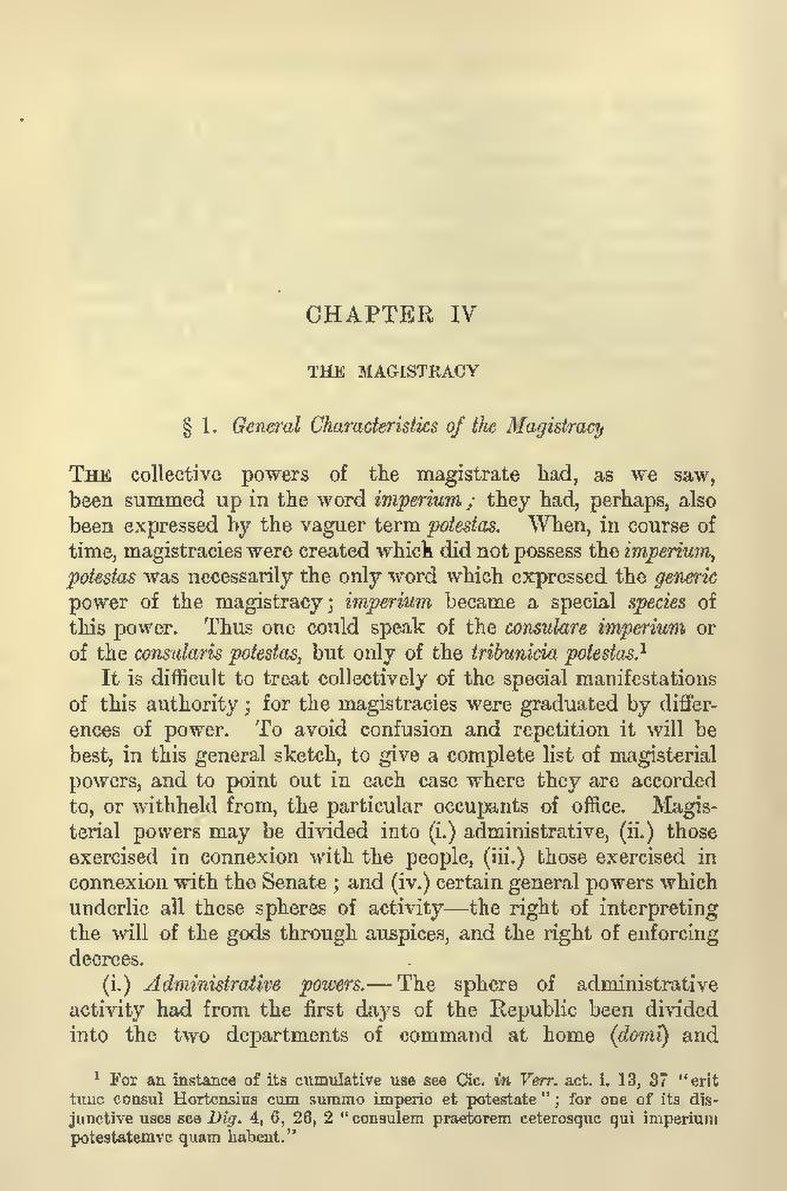CHAPTER IV
THE MAGISTRACY
§ 1. General Characteristics of the Magistracy
The collective powers of the magistrate had, as we saw, been summed up in the word imperium; they had, perhaps, also been expressed by the vaguer term potestas. When, in course of time, magistracies were created which did not possess the imperium, potestas was necessarily the only word which expressed the generic power of the magistracy; imperium became a special species of this power. Thus one could speak of the consulare imperium or of the consularis potestas, but only of the tribunicia potestas.[1]
It is difficult to treat collectively of the special manifestations of this authority; for the magistracies were graduated by differences of power. To avoid confusion and repetition it will be best, in this general sketch, to give a complete list of magisterial powers, and to point out in each case where they are accorded to, or withheld from, the particular occupants of office. Magisterial powers may be divided into (i.) administrative, (ii.) those exercised in connexion with the people, (iii.) those exercised in connexion with the Senate; and (iv.) certain general powers which underlie all these spheres of activity—the right of interpreting the will of the gods through auspices, and the right of enforcing decrees.
(i.) Administrative powers.—The sphere of administrative activity had from the first days of the Republic been divided into the two departments of command at home (domi) and
- ↑ For an instance of its cumulative use see Cic. in Verr. act. i. 13, 37 "erit tunc consul Hortensius cum summo imperio et potestate"; for one of its disjunctive uses see Dig. 4, 6, 26, 2 "consulem praetorem ceterosque qui imperium potestatemve quam habent."
